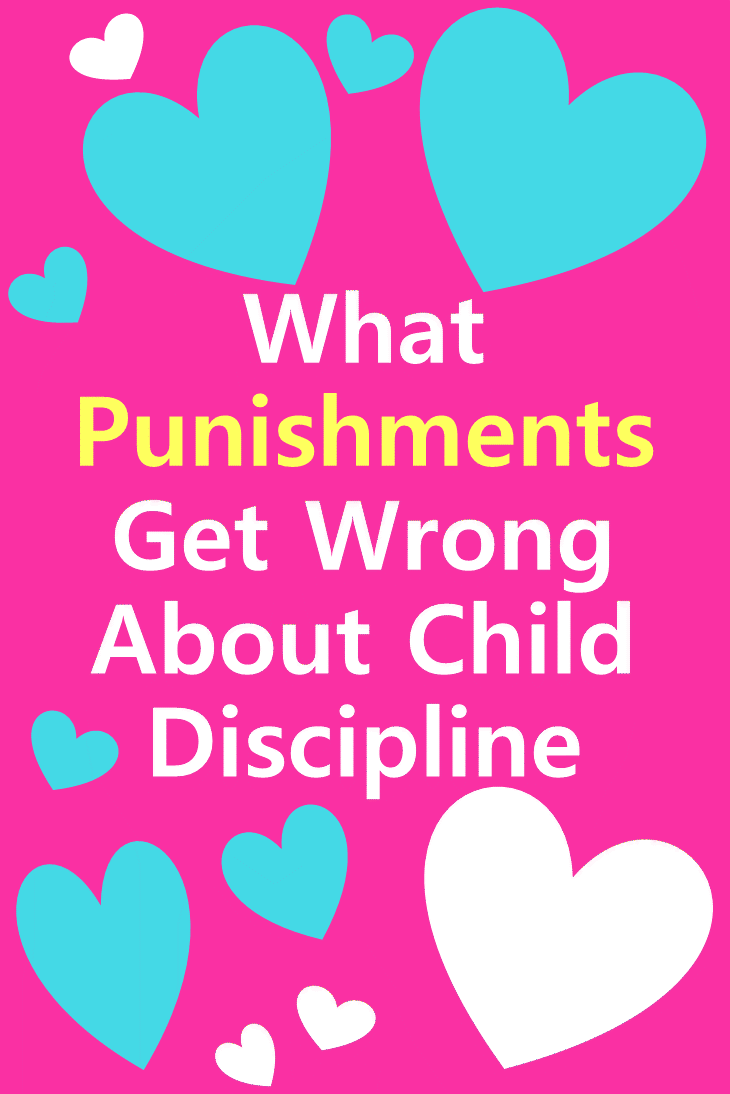How do you raise a child? New parents might start asking themselves this starting from day 1 as they cluelessly strap their newborn into a carseat and drive home. From the beginning we wonder how to keep our young one safe and healthy, and before we know it that newborn has become a full on toddler and we’re wondering which punishments are right for their age.

(This post might contain affiliate links, which means if you happen to buy a product I love then I may get a commission – at no extra cost to you! For all the Ts and Cs go here.)
Punishments are a common form of discipline
Punishment comes in all different shapes and sizes, but it’s very very common. Here are some common punishments parents might implement in their home:
- Time out.
- Sending child to their room.
- Taking away their favourite toy.
- Sending them to bed early or without dinner.
- Taking away a privilege such as TV time
- Refusing them to go to a special event, such as a birthday party for a friend.
- Yelling, nagging and lecturing their child.
- Making them write lines, such as such as repeating, “I will not do ____ again”
- Making them to do an additional chore or other work around the house.
- Spanking.
In many homes across the world these practices are very common, and there are many other examples of punishments that could be added to this list.
So many parents use punishment to discipline their children, but do punishments really work?
It could be argued that the child who use their toy to hit their brother won’t do it again after having that toy taken away. Or that the child who was misbehaving at school won’t dare to do it again after not being allowed to go to their friend’s birthday party. It can be argued that after strict punishments are used children will surely learn their lesson and never dare to repeat their mistakes again.
Yes, this could be argued. But does that really mean it works?
I say no.
Why are power struggles so common?
Power struggles are when a parent and a child both want different things and argue over it. The parent wants a child to do something and they resist and resist, the parents will continue to push their child to do what’s required and become frustrated when the child continues to refuse. Perhaps the child will eventually give in in a defeated and broken way, or perhaps the parents will give up on the constant nagging. Either way, this doesn’t feel fun for either of them nor does it seem very productive.
Power struggles can become very common in families that use punishments. When parents use punishment to discipline their children they can often skip some necessary steps that will help their child to not repeat that same mistake. When we we rely on punishments it’s easy to forget the importance of connecting with our child and trying to understand what’s going on inside of them.
It would be frustrating for anyone to be given a punishment without being able to explain their actions. Imagine all criminals were thrown into jail without a trial, imagine how many people would be locked up innocently because they weren’t able to explain themselves. Oftentimes though our children’s Behavior can seem fairly black and white, we can tell exactly what has happened. We might have even seen it with our own eyes, our one child smacked are other child over the head with a large toy. You’re a witness, you caught them red-handed.
You could immediately give them a punishment, or you can try to find out why they did it.
You can give them the comfort they need to come down from that big emotion, while also validating their feelings and teaching them more appropriate ways to cope with the anger that led them to hurt their sibling.
When you we rely completely on punishments it can become frustrating for your child. Your child might not understand why they can’t do what they want to do, and they might not even have the skills to do things differently. Overtime they may begin to resist what you’re expecting them to do, and even resist the punishments you’re trying to use. At this time power struggles are going to become a huge issue in your home.
You will both feel tense, and it will become very difficult to gain your child’s cooperation even for smaller simpler tasks. It will become very frustrating, and you might start to feel at your wits ends with your child’s behaviour. You might feel like you’ll never be able to find a way to get them to behave the right way ever again.
They get older, the power struggle gets worse and worse, and before you know it you’re Googling things like “My teenager is out of control.”
Punishments just don’t work
As I said before, it could be argued that punishments work.
It could be argued that even the threat of a punishment works, not even if you just remind a child that they will be spanked they will stop doing whatever it is that they shouldn’t be doing.
If you looked at short-term cause and effect you might say that punishments definitely work for child discipline.
But I’m all about Gentle Parenting, and with Gentle Parenting we are not about the short-term it’s all about the long-term.
What is your goal for your child’s behaviour?
Do you want them to obey every word you say starting from today? Or do you want to help them, over time, to learn how to make the right decisions?
You see, it’s all about the long-term approach.
The thing about punishments is that they don’t teach children to think about the real life consequences. It might teach some to think about the consequences we will give them, which is really just fear if you think about it. They will choose to do something not because they want to do the right thing, but because they’re afraid of what you’ll do to them if they do the wrong thing.
Children who live this way might obey for a very long time, but they will likely reach a point in their life where they rebel.
Studies have even shown that punishments don’t teach us to avoid the action that caused us to get punished, but rather to avoid the punisher.
We’ve been taught that good parents punish their kids
I’m not exactly sure when society decided that children should act like adults, but it’s definitely put a lot of pressure on parents to make their children obey perfectly especially when I’m out in public. Parents judge other parents all the time and it’s brutal. When a child is having a meltdown in a grocery store most onlookers will assume the parents is doing a bad job and should punish their child, rather than realizing it’s most likely that the child is just tired and unable to regulate their big emotions at this time of their life.
Somehow we’ve been given high expectations for our children, and it’s easy to put those expectations on them as well.
But children are not adults.
Children do not have the same abilities we have when it comes to controlling emotions and making the right decisions even in heated moments.
While we simply imagine hitting our co-worker who says something offensive, our child will just do it. They don’t have the same self-control that we have, or skills to cope and process with those big emotions. So how can we expect them to behave as if they do?
Sadly, when children behave in a perfectly normal way they’re labeled as bad or naughty. And then in turn the parent is labeled as a bad parent. This is madness!
It’s not punishments that make good parenting, it’s discipline.
And true discipline means to teach.
Good parenting means we teach our children how to cope and process their big emotions. Good parenting means we give our children appropriate ways to express their anger, it does not mean we allow them to hurt others, but we don’t punish them for having an emotion that is so normal for everyone.
Good parenting means we guide our children to make the right decisions, so that when they do good it’s because they truly choose to do the right thing not because they’re afraid of what will do to them if we happen to be watching or if we find out what they’ve done.
Good parenting means we kind of have to forget what everyone else is thinking and saying about us. We can’t pulled our children to unrealistic expectations, this will cause a lot of frustration for both of us. Instead, we need to have age appropriate expectations for them and then teach and guide them to reach those expectations.
When our children have big, overwhelming, extreme emotions we have to remain the calm in their storm. We need to help them come down from that emotional rollercoaster so they’re able to think clearly and make the right decisions.
Using positive discipline, which empowers our children to choose to do the right thing, is actually a much bigger challenge than relying on punishments.
Positive discipline can be difficult to stay consistent with.
It requires you as the parent to humble yourself, to respect your child, to see things from their point of view, and to go over many of the same behaviors over and over again until your child learns the appropriate way to respond. It may feel repetitive and endless at times, but in the end will result in a child who is responsible enough to make the right decisions even when no one is watching.
The thing punishments gets wrong is that it’s all about the parent.
Punishments can be used to make a child stop annoying the parent. Punishments immediately remove a behavior that is an inconvenience to a parent. It makes the behavior physically disappear, but maybe creating deeper issues that will come up at a later time.
Punishments don’t have a child’s best interest at heart, but positive discipline with natural consequences does.
What is your end goal for your child, that their behavior would never affect you in a negative way? Or that they would grow to be an adult who makes the right decisions and chooses to do good?
Parents, we can do better than using punishments on our child.
It might take a lot of work, and a lot of learning, but we when we embrace Gentle Parenting and positive discipline, we can help to mold wonderful, responsible human beings.
Let me make my final point with this powerful quote:
Are you ready to embrace a more meaningful form of discipline? A discipline strategy that one power your child to make the right decisions? Then join me for the FREE email course, called Gentle Foundations for Parenting.
Sign up below to get started, and you will learn new and effective strategies to replace the typical punishments that you might currently rely on. You have the opportunity to provide something that will be effective for your child long-term, and overall will be easier for you as a parent once you learn the necessary skills.
Develop a deeper, more loving relationship with your child by using Gentle Parenting. Sign up now to get started.

More About Disciplining Children
Great Reasons Moms Stopped Spanking Their Kids
Best Solution for 18 Month Old Tantrums (Gentle Parenting Approved)
